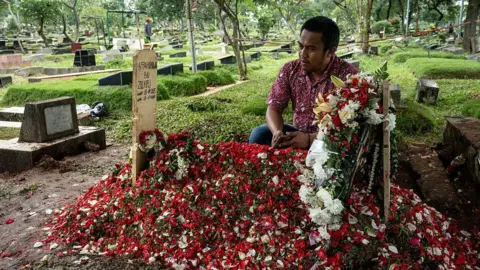In a deeply moving account, the last days of celebrated actor Gene Hackman have come to light, illuminating not only the struggles of individuals battling Alzheimer's disease but also the broader implications for caregivers in our society. Hackman, a two-time Academy Award winner, passed away at the age of 95 on February 18, just one week after the death of his wife, Betsy Arakawa, who succumbed to a rare virus.
Medical experts suggest that Hackman, who was experiencing advanced stages of Alzheimer's, may have been entirely unaware of his wife's passing. This condition often leaves patients trapped in a cycle of confusion, engendering emotional turmoil and isolation. Catherine V Piersol, an occupational therapist with a wealth of experience in the field of dementia care, expounded on the chaotic state of emotion Hackman might have endured, explaining that those in the grips of severe Alzheimer's might remain fixated on someone they have lost, cycling through moments of grief and confusion without the ability to seek help.
The couple's tragic end unfolded in their home in Santa Fe, New Mexico, where they were discovered after neighbors raised concerns. Initially considered suspicious, authorities soon concluded there was no foul play involved. Autopsy results revealed that Arakawa had died from hantavirus pulmonary syndrome, while Hackman's demise was attributed primarily to significant heart disease exacerbated by his neurological condition. His autopsy reflected that he had not eaten for some time, raising questions about his self-care abilities in the absence of his wife's presence.
Dr. Heather Jarrell, New Mexico’s chief medical examiner, noted that it was highly probable Hackman did not recognize his wife's death, stating that Alzheimer's may impair a person's understanding of their environment and temporal cues. This sentiment was echoed by Dr. Brendan Kelley, who emphasized the emotional complexity faced by those with Alzheimer's, where feelings of worry or distress may be felt but unable to be acted upon effectively.
The couple's deaths sparked an outcry in the local community, with residents expressing disbelief that no one checked in on them regularly, which underscores a larger societal issue regarding the dynamics of aging populations and caregiver support systems. Behavioural scientist Laura N Gitlin highlighted that as families shrink and societal structures evolve, the burden of caregiving increasingly falls on fewer individuals, leading to impossible decisions about care facilities versus at-home care.
The story of Gene Hackman and Betsy Arakawa serves as a poignant reminder of the often unseen struggles of loved ones battling advanced Alzheimer's, and the critical need for community awareness and support systems for caregivers. As the narrative of their lives unfolds, it opens a dialogue not just on the realities of dementia but also on how society can better support those who find themselves in similar predicaments.






















